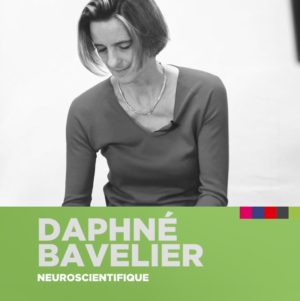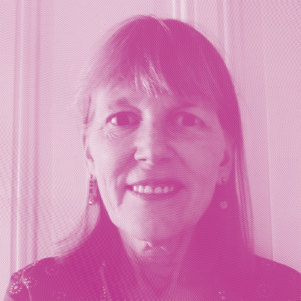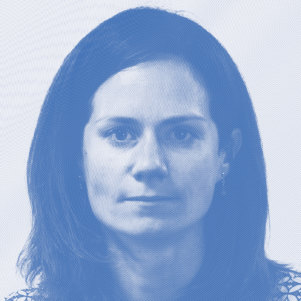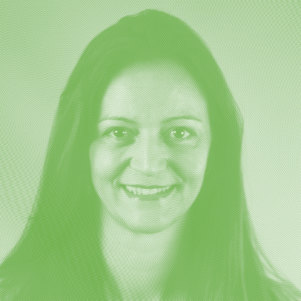I’ve been a full professor in cognitive neuroscience within the Faculty of Psychology and Educational Sciences since 2011. I study how the brain evolves naturally – as a result of deafness, for example – and how it can be trained, such as by playing video games. I’ve shown that playing what are often considered ‛mind-numbing’ action games can have beneficial effects on certain aspects of behaviour. Drawing on this unexpected finding, my lab is studying how new media – like video games – can be used to leverage learning and enhance the brain’s plasticity. I also co-founded Akili Interactive, a company that develops therapeutic video games, and I’m a scientific consultant for the company. I sit on expert panels for the World Economic Forum, including for the New Vision for Education : Unlocking the potential of technology project, and more recently the Council for Human Enhancement.
I’m passionate about understanding the biological and neuronal basics behind our behaviour and studying the impact of new technologies on our brain and our psyche. I like that I might discover something new at any moment, and I enjoy having intellectual discussions with colleagues. I’m driven by the challenge of always heading into the unknown.
My career path. I ended up where I am after I made an unexpected discovery while studying brain plasticity in people who were born deaf. I wouldn’t be here if it wasn’t for some truly fantastic colleagues who supported me just when my career was taking off. I studied biology at the Ecole Normale Supérieure in Paris and then went on to obtain a PhD in brain and cognitive sciences from MIT. From there, I trained in human brain plasticity at the Salk Institute in San Diego. I set up my first lab in the Neurology Department at Georgetown University, before moving to the Brain and Cognitive Sciences Department at the University of Rochester in 1999.
A downside or obstacle ? It’s important to stay humble when faced with the complexity of the brain and all its functions. There’s still no name for my field ; it’s extremely cross-disciplinary and covers neuroscience, psychology, ethics and artificial intelligence. In some of these fields, there are a lot of women and in others there are very few.
I’m proud to have been able to show how new technologies, like video games, can be used to enhance the brain’s plasticity and learning.
The Proust Questionnaire
This section is available only in the original languageLa vie !
Simone Veil et Barak Obama.
Candide (Voltaire) et les vidéos autour des premiers pas de l’homme sur la lune.
Le modèle le plus courant en neurosciences qui considère le cerveau comme une machine à prédire.
Les montagnes
Le rouge
Pouvoir se dissoudre dans la nature et se transporter instantanément d’un point à l’autre.




